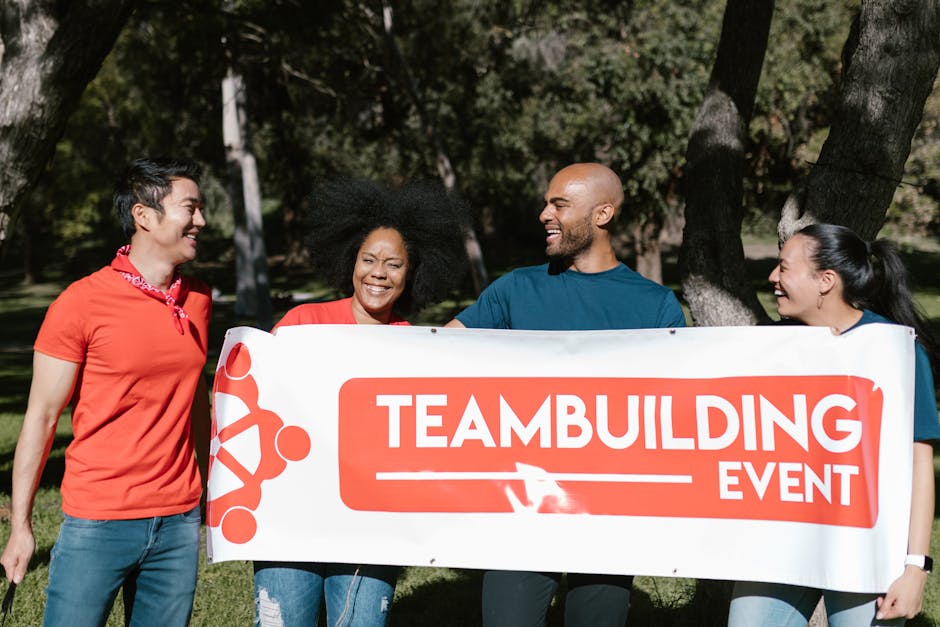No products in the cart.
The Bonds That Build: Lessons from Hospital Playlist on Career Friendships
Discover how 'Hospital Playlist' offers valuable lessons on fostering professional friendships and support systems that last.
Seoul, South Korea — In the bustling world of healthcare, where lives hang in the balance, the bonds forged between colleagues can be as vital as the skills they hone. This is the essence captured in the beloved Korean drama “Hospital Playlist,” where friendships are not just a subplot but the heartbeat of the narrative. The show not only entertains but also offers a masterclass in cultivating professional relationships that withstand the test of time.
Set against the backdrop of a hospital, “Hospital Playlist” follows a group of five medical school friends who reunite as doctors. Their journey is a tapestry woven with laughter, tears, and the intricate dance of work-life integration. As they navigate the challenges of their profession, they exemplify how to build a support system that thrives on mutual respect, understanding, and shared experiences.

The friendships depicted in the series echo the sentiments of workplace dynamics in our own lives. In an age where job security is a whisper and the gig economy reigns, the need for strong professional networks has never been more pressing. According to a recent survey by LinkedIn, 85% of jobs are filled through networking, highlighting the importance of fostering relationships beyond mere transactions.
But what does it take to build these enduring connections? It begins with authenticity. Just as the characters in “Hospital Playlist” reveal their vulnerabilities to one another, so must we be willing to show our true selves in the workplace. This authenticity fosters trust, creating an environment where colleagues feel safe to share ideas, seek advice, and offer support.
In an age where job security is a whisper and the gig economy reigns, the need for strong professional networks has never been more pressing.
Consider the story of Mia, a young marketing professional in New York City. After relocating for a new job, she found herself feeling isolated in a sea of unfamiliar faces. Inspired by the camaraderie she witnessed in “Hospital Playlist,” she decided to take action. Mia organized casual coffee meetups with her teammates, intentionally creating a space for open dialogue and genuine connection. Over time, these gatherings blossomed into a robust support system, leading to collaborative projects and innovative ideas that ultimately propelled her career forward.
Of course, building relationships is not without its challenges. The fast-paced nature of modern workplaces often leaves little room for personal connection. A report by Gallup reveals that only 30% of employees feel engaged at work, suggesting a significant gap in interpersonal relationships. This disengagement can lead to burnout, decreased productivity, and a lack of job satisfaction.
To counteract this trend, leaders must prioritize relationship-building as a core value. Organizations that foster a culture of collaboration, where employees feel valued and respected, are better equipped to retain top talent and drive innovation. This is evident in companies like Google, which has long championed a collaborative work environment, leading to groundbreaking innovations and a loyal workforce.
Moreover, the importance of mentorship cannot be overstated. In “Hospital Playlist,” we see experienced doctors guiding younger colleagues, sharing wisdom that transcends medical knowledge. Mentorship is a powerful tool for professional growth, offering not just guidance but also a sense of belonging. A study by the American Psychological Association found that individuals with mentors are more likely to receive promotions and feel satisfied in their careers.
In today’s interconnected world, mentorship can extend beyond traditional hierarchies. Online platforms like LinkedIn and industry-specific forums have made it easier than ever for young professionals to connect with seasoned experts. By leveraging these resources, individuals can expand their networks and gain insights that propel their careers forward.
Mentorship is a powerful tool for professional growth, offering not just guidance but also a sense of belonging.
As we look to the future of work, the lessons from “Hospital Playlist” resonate more than ever. The integration of technology into our professional lives has transformed how we communicate and collaborate. Virtual workspaces may offer convenience, but they also pose a threat to genuine connections. To combat this, professionals must be intentional about fostering relationships, whether through virtual coffee chats or collaborative projects that encourage teamwork.
In conclusion, the narrative woven through “Hospital Playlist” serves as a poignant reminder of the power of friendship in the workplace. As we navigate our careers, let us embrace the lessons of authenticity, mentorship, and intentionality. By doing so, we can cultivate professional relationships that not only enhance our work experience but also enrich our lives. The future of work is not just about skills or titles; it’s about the connections we forge along the way.











